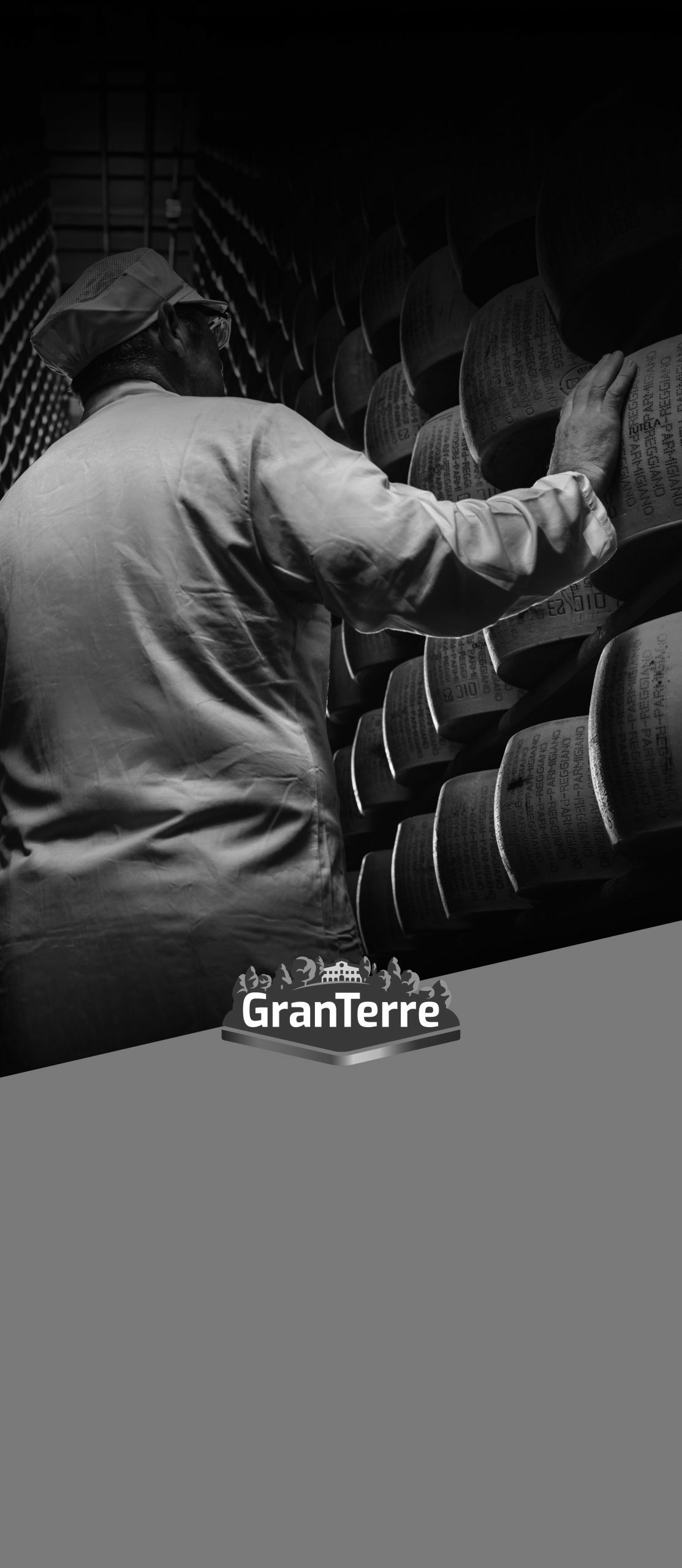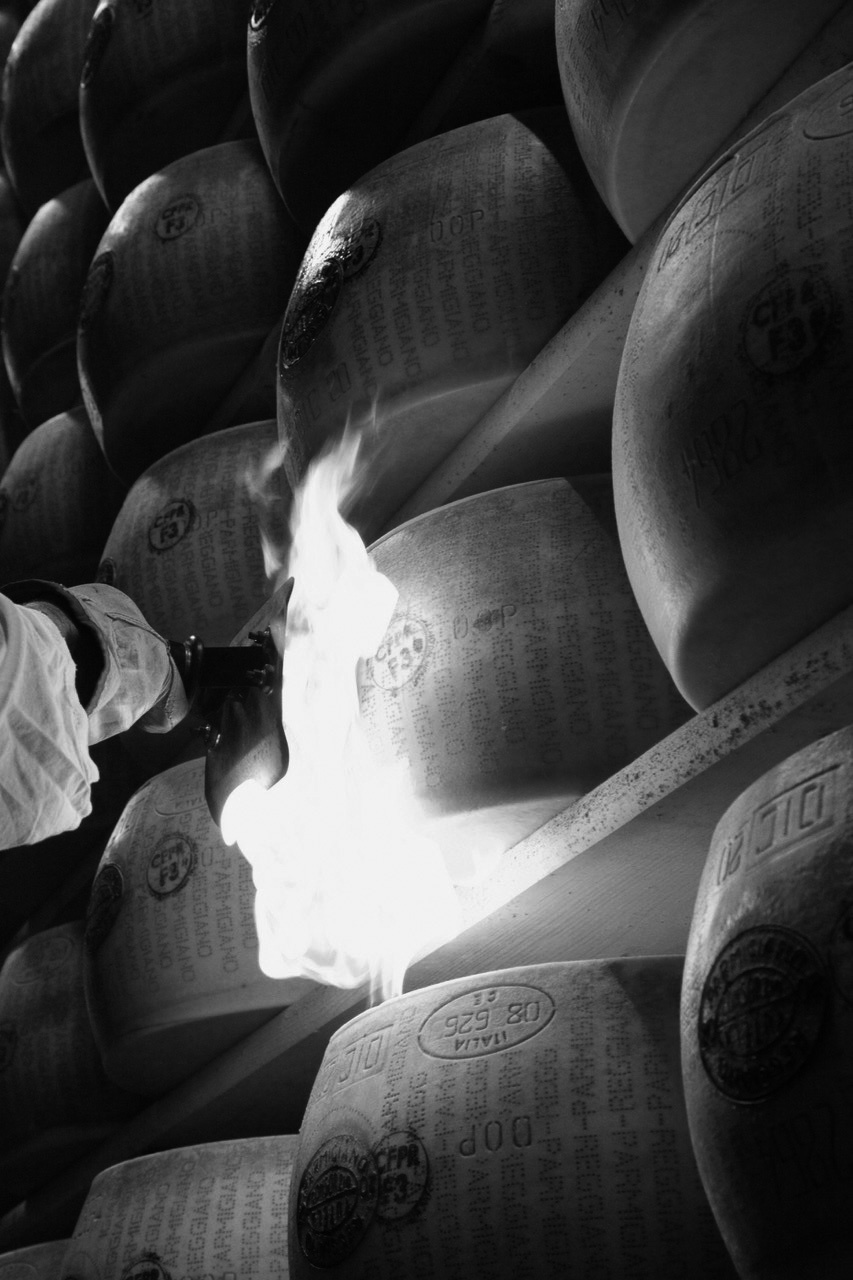La entidad en datos
Main activity: Production and Marketing of Agro-Food Products
Year founded: 2023
Legal structure: Wholly cooperatively owned, jointly participated in and controlled by Unibon Spa and Consorzio Granterre S.c.a.
Number of people currently employed: 2.861
Region/Country in which it operates: Italy Category: Agri-food/fisheries

CLAVES DEL ÉXITO E IMPACTO EN LA SOCIEDAD
Granterre is an Italian agri-food group specialised in the production and commercialisation of traditional cured meats and PDO cheeses, such as Parmigiano Reggiano and Grana Padano. Founded in 1959 as “Consorzio Caseifici Sociali Scrl” by eight dairies in the Parmigiano Reggiano area, its initial goal was to collect cream and butter from member producers and process them at the cooperative’s industrial facility.
Over the years, the group has undertaken a significant path of diversification and growth through strategic acquisitions, including the integration with Agriform, a leader in the production of regional PDO hard cheeses. As of January 1, 2023, the group has adopted the name GranTerre S.p.A., reflecting its rich heritage of agri-food excellence and expertise. GranTerre aims to establish itself as the leading hub of Italian gastronomic excellence in the cured meats and cheese sectors, with a strong commitment to sustainability, innovation, and an ambitious expansion strategy into international markets.
Over the years, the group has experienced significant growth:
in 2023, it achieved consolidated revenue of €1.6 billion, with €506 million coming from exports. GranTerre has opted for a fully cooperative-owned legal structure, jointly participated in and controlled by Unibon S.p.A. and Consorzio Granterre Cooperativa Agricola. This structure offers numerous strategic and operational advantages that have contributed to the group’s growth and stability over time.
Economic: It supports employment and the growth of the Italian agri-food sector.
Social: It enhances the cooperative model, ensuring fair compensation for member producers.
Environmental: It reduces its ecological footprint through sustainable and responsible practices.
Thanks to this strategic vision, Granterre continues to grow, maintaining a strong connection with tradition while addressing new challenges in the global market.

DESAFÍOS ENFRENTADOS
The Granterre Group has faced several challenges over time, primarily related to market evolution, economic, social, and environmental dynamics. The main challenges can be summarized as follows:
Competition and Globalization: The Group had to contend
with growing competition both nationally and internationally, requiring strategies of innovation and differentiation to maintain its competitiveness.
Adapting to Changing Consumer Trends: Emerging consumer trends, such as the demand for organic and healthier products, pushed Granterre to continuously diversify and improve its offerings to meet consumer expectations.
Technological Innovation and Sustainability: Investing in advanced technologies and sustainable practices became crucial to ensure efficiency, quality, and to meet rising environmental and social expectations.
Supply Chain Management: Maintaining stable relationships with producers and managing the supply chain efficiently was essential to ensure product quality, traceability, and stability in raw material costs.
Economic Crises and the Pandemic: Global economic crises and the pandemic created market uncertainties, testing the Group’s adaptability. Managing production and distribution during these critical times required resilience and flexibility.
ESCALABILIDAD Y REPLICABILIDAD
The Granterre Group’s business model is scalable and replicable, thanks to its flexibility, its ability to adapt to market demands, and its focus on sustainability and innovation.
Scalability mainly applies to the expansion of production and markets, while replicability is achieved through the adaptation of supply chain practices and product diversification.
CONCLUSIONES Y MORALEJA
Granterre’s experience highlights the importance of focusing on quality and a well-managed supply chain.
Innovating without losing one’s identity is essential to remain competitive. A strong connection with the local territory enhances the authenticity and value of the product.
A cooperative culture, shared with its social base, has supported solid and sustainable growth.